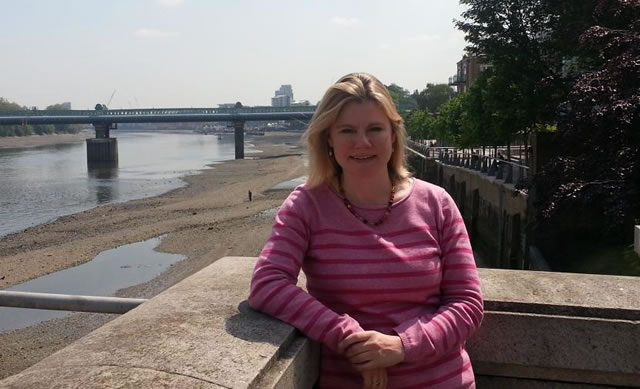Justine Greening Writes to Her Constituents on Brexit
Explains why she can't back the Chequers deal and wants another vote on the EU

Dear Resident,
I wanted to update you in relation to Brexit. I’ve reached the conclusion that although I wanted the Prime Minister’s Chequers Agreement to be a workable compromise, it is clear it is not. Whilst well intentioned, we’ve ended up with the worst of both worlds.
The proposal means we’ll be dragging Remain voters out of the EU, for a deal that means still complying with many EU rules, but now with no say on shaping them. I know from my casework that for many this is absolutely not what many local people want, including the overwhelming majority of young people. A number of Remain voting constituents have also expressed a frustration that when they hear Leave voters are unhappy, they increasingly ask “what’s the point?”
Similarly, whilst fewer in number than those voting Remain locally, I also recognise that for Leave voters, this deal simply does not deliver the break from the European Union that they wanted. This Chequers deal will also be negotiated with the European Union over the coming months, and could quite well end up even less favourable for our country than it already is.
Finally, I think it will prove inoperable to get Common Rulebook changes voted through Parliaments like the current one, so we will just see more instability and uncertainty for business and investment which is not good for our country’s future.
I cannot therefore support the Chequers deal.
All MPs have to reach their own view, but in practice, my assessment is that Parliament is now stuck in a stalemate. Effectively there is a blocking group of MPs for every alternative proposed, whether the Chequers deal or leaving with no deal. I’d very much hoped that we could achieve a consensus on the way forward after the result in 2016, but it’s clear that this isn’t possible. A big part of the problem is that Parliament works on party political lines, but Brexit cuts across those. Parliament cannot deliver a route forward.
However, even in the unlikely event that MPs were allowed a free vote on the final deal in Parliament, it still means that in every constituency - ours was mainly Remain - there will inevitably be local people disenfranchised by their MP’s vote, despite Brexit shaping all our lives for decades to come. That’s unacceptable to me. I deal with lots of correspondence on Brexit and people have very different views. I want to represent my constituency but that’s impossible with just one vote. Brexit is too important for any MP to override the views of people.
The only solution left is to take the final Brexit decision out of the hands of deadlocked politicians, away from the backroom deals and give it back to the people to decide. I recognise that many people will feel that we had the vote and should get on with it, but Parliament is at an impasse and not able to do that. People therefore have to vote for the way through they want.
This shouldn’t be a divisive, binary choice. Two years on, the practical Brexit options are now clear and the public should be asked to choose between the three paths facing our country – the PM’s final negotiated Brexit deal, staying in the EU, or a clean Brexit break and leaving with no deal. And crucially, I have argued the referendum should give the public a first and second preference vote, allowing a consensus to finally be found.
This approach is exactly how we deliver elected Mayors across the country who can command a consensus, including here in London. It can work, it’s fair and it will finally deliver a clear voting majority on the way forward, a unique chance to settle the European question for a generation.
I have spent a lot of time trying to think through what is the right thing to do for our country and for our community. That comes first for me over party politics. I hope that whether or not you agree with me, you can at least see that I’m now asking for your voices locally to be heard and to count every bit at the ballot box as much as my own.
Best wishes,
Rt Hon Justine Greening MP
July 18, 2018